Research Labs
Search
Search results
-

The Acharya lab studies how immune cells integrate signals from pathogens and their environment to produce effective immunity against pathogens while maintaining tolerance to self-derived antigens.
-

Scientists in the Aderem Lab are studying innate responses to HIV, tuberculosis, influenza, and other pathogens that significantly impact global health. Our goal is to define the mechanisms that result in a successful immune response to infection or vaccination and identify targets for therapeutic intervention.
-

The Aitchison Lab focuses on the development and application of systems biology approaches to infectious diseases.
-

The Aldinger Lab uses developmental neuroscience and computational approaches to decipher the mechanisms that cause pediatric neurogenetic disorders and pathologies associated with structural brain changes, cognitive impairment, and epilepsy.
-

The Allenspach Lab focuses on translational work to understand immune dysregulation disorders – those with overlapping immunodeficiency and autoimmune features.
-

The Baertsch Lab investigates how breathing is generated and regulated by the brain. By uncovering fundamental cellular and network mechanisms of respiratory control, we hope to inspire new therapeutic interventions to treat breathing disorders associated with neurological pathology, prematurity, and opioid use.
-

Behavioral and Clinical Outcomes Research Program
The Behavioral and Clinical Outcomes Research Program (BCORP) is the home for cancer outcomes research within the Ben Towne Center for Childhood Cancer and Blood Disorders Research.
-
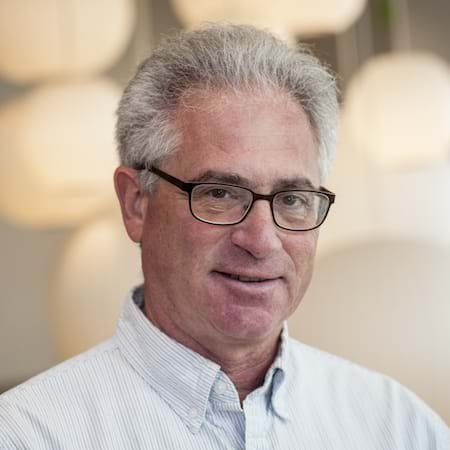
The Beier Lab uses genetic analysis in model systems as a means to understand human biology and disease, and identifies genes that contribute to human disease and developmental abnormalities.
-

The Bennett lab at Seattle Children’s Research Institute investigates the contribution of post-zygotic mutations on human development and birth defects, with a focus on vascular malformations. We also study the impact of rapid diagnostic genomic sequencing in management of children in intensive care units.
-

Biobehavioral Oncology Research Program
Understanding how psychosocial factors impact outcomes for children, adolescents and young adults with cancer using integrated translational and behavioral approaches.
-

The Bjornson laboratory’s research aims to improve the lives of children with cerebral palsy. We focus on gathering objective data around interventions in orthotics, gait training and power training that can dramatically enhance children’s balance, muscle strength, walking and general mobility in daily life.
-

The Bogetz Lab focuses on improving serious illness care for children with severe neurological impairment and their families through interventions to promote high quality communication and family-centered care.
-
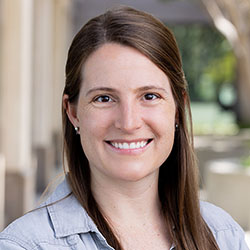
The Carbone Lab investigates the master role of dendritic cells (DCs) in orchestrating immune responses, with a focus on their impact in cancer immunotherapy. By studying how DCs recruit and activate other immune cells within the tumor microenvironment, we aim to uncover novel mechanisms that can enhance anti-tumor imm
-

The Heike lab conducts innovative research on questions related to craniofacial microsomia, Craniosynostosis, Cleft lip and palate, and other craniofacial conditions.
-

As Seattle Children's principal investigator for SEARCH for Diabetes in Youth and other diabetes research studies, Dr. Cate Pihoker is leading national efforts to gain a better understanding of the differences in the development, clinical presentation, and health outcomes in youth with diabetes.
-

Identifying therapeutic strategies towards increasing resilience to heart disease and improving overall health and lifespan of patients.
-

The Cherry Lab investigates how the visual system develops, and how genetic variations contribute to blindness and other visual disorders.
-

The Christakis Lab studies how the early environment impacts childhood behavior and development, and develops strategies that help parents optimize their children’s social, cognitive and emotional development.
-

Our lab uses a community-engaged approach to develop innovative ways to deliver healthcare. Our goal is to reduce socioeconomic and racial/ethnic disparities in child health and healthcare.
-
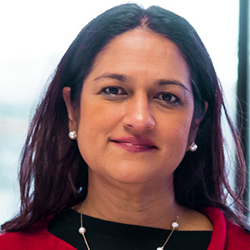
The Coler Lab focuses on vaccine development and host-directed therapies against a variety of epidemic and pandemic diseases.
-
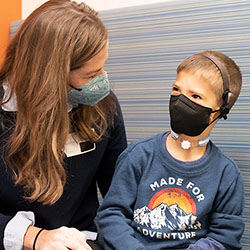
The Craniofacial Outcomes Research and Epidemiology (CORE) group unites researchers around a shared vision: to collaborate on discoveries that advance our understanding of the causes of craniofacial conditions and to improve healthcare for children with conditions affecting the head and neck.
-

The Crocker Research Program focuses on how environmental exposures affect respiratory health, and how to use this knowledge to design real-world, equitable and practical interventions for children with asthma.
-
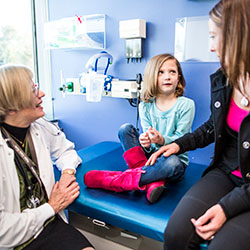
From developing groundbreaking therapies to leading clinical research studies, Seattle Children's has been an international leader in cystic fibrosis (CF) research for more than 25 years.
-

Diffuse intrinsic pontine glioma (DIPG) and diffuse midline gliomas (DMG) are aggressive childhood cancers. The DIPG Research Program at Seattle Children’s focuses on development of new therapies for aggressive brain and central nervous system tumors through optimization of clinical care.
-

The Debley Lab is engaged in an array of translational research investigating the role of the airway epithelium in childhood asthma.
-

Dr. Arti Desai’s research program focuses on developing and testing innovative health information technology solutions to optimize comprehensive, coordinated and equitable care for children with chronic conditions.
-

Development and Psychosocial Outcomes Lab
The Development and Psychosocial Outcomes Lab, directed by Dr. Kaitlyn (Katy) Fladeboe, is dedicated to identifying and addressing the unique psychological, social, and developmental needs of adolescents and young adults (AYAs) with cancer.
-

The DiBlasi Lab aims to develop and evaluate inhaled therapies and life-support systems for newborns and children with life-threatening respiratory failure.
-

The Diekema Lab focuses on ethical issues that affect children in the clinical, research, and policy arenas. Areas of focus have included the limits of parental decision-making on behalf of children, vaccine hesitancy, allocation of limited resources, and issues arising during disasters and pandemics.
-

The Equity, Navigation, Communication, and healthcare Outcomes REsearch (ENCORE) lab is an NIH-funded research lab founded by Dr. Casey Lion that aims to achieve equitable healthcare outcomes for children from historically marginalized populations.
-

Our mission is to study novel mechanisms of bronchopulmonary dysplasia (BPD) pathogenesis. Three areas of research: development of airway disease in severe BPD; hyperoxia-induced lung injury in vivo (basic mouse model); airway epithelial cell differentiation (mechanistic translational model).
-
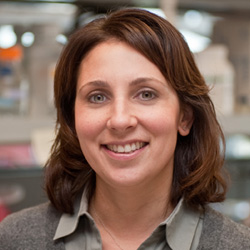
The Ferguson lab strives to understand the role of cortico-basal ganglia-thalamic circuitry in the development of behaviors associated with drug reward and addiction. We also explore the processes that underlie decision-making, motivation and impulsivity.
-

The Franks lab aims to understand the cellular and molecular dynamics regulating inflammation and progressive fibrosis by developing computational methods that improve 'omics analyses in complex diseases.
-

The Frenkel Lab aims to: understand the mechanisms that allow HIV to persist during antiretroviral therapy; develop practical, affordable tests to detect drug-resistant HIV; make insights into reservoirs of drug-resistant HIV and illuminate the pathogenesis of HIV-related diseases.
-

Research in the Gallo Lab focuses on neural stem/progenitor cells and their potential for perinatal brain regeneration and repair after injury.
-
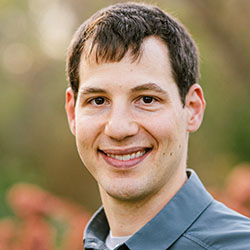
Studying host-pathogen interactions as they occur in tissues.
-

Our goal is to decipher signaling networks that affect neuron development and engineered behaviors. We focus on molecular players and cellular processes involved in neurodevelopmental disorders, neurodegenerative disease and opioid drug addiction.
-
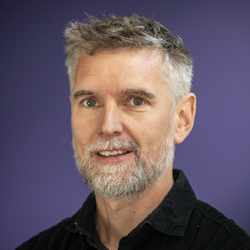
The Grundner Lab seeks to map the signaling pathways that underlie Mycobacterium tuberculosis’s (Mtb’s) adaptability and pathogenesis. Our studies provide fundamental insight into Mtb biology and identify new targets for therapeutic interference.
-

The Gust lab studies how cancer treatment and inflammation affect the developing brain.
-

Led by Dr. Heather Gustafson, EDIT Labs develops novel technology platforms that target and alter macrophage phenotypes.
-

The Health Information and Visualization Experience (HIVE) Lab, led by Dr. Ari Pollack, builds tools and technology to tackle challenges like streamlining patient records and facilitating collaborative decision-making all while tailoring care to patients’ values.
-

The Hahn laboratory focuses on development and validation of assays that have important clinical applications for population screening, diagnosis and prognosis.
-

The Harrington Lab focuses on intergenerational immune interactions and their effect on susceptibility to infection during pregnancy and infection.
-

In the Hernandez Lab, we use a combination of genetics, molecular biology, cell culture models and animal models to probe the interactions between mycobacterial pathogens and host immune cells.
-
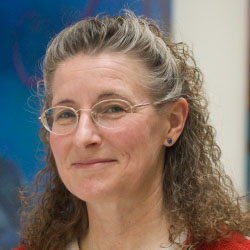
Dr. Anne V. Hing investigates the genetic causes of craniofacial disorders and specializes in recruiting patients for studies.
-
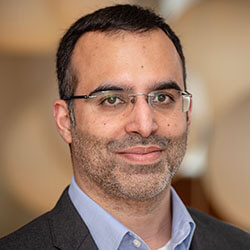
Improving Diabetes Outcomes Lab
We are committed to developing and investigating the effectiveness of innovative, person-centered interventions that make a difference for young people living with diabetes, and making new pharmaceutical agents and diabetes technology available to children and young adults to support their diabetes management.
-

Our lab's research seeks to eliminate inequities in childhood physical activity and nutrition outcomes among racial/ethnic minorities and socioeconomically disadvantaged populations through innovative behavioral interventions and policies in school and community settings.
-
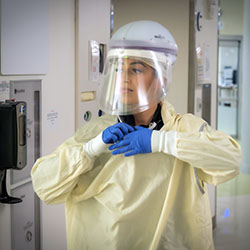
The Infectious Disease (ID) Research Program is dedicated to discovering better ways to diagnose, treat and prevent infectious diseases.
-

SCITL is dedicated to using, advancing and developing everyday technologies for improving the lives of children with autism spectrum disorder and other developmental disabilities. Learn more about our mission, areas of work, and how to participate in our research studies.
-

The Jackson Lab studies the immune mechanisms underlying the development of systemic autoimmune diseases, focusing in particular on the role of B cells in systemic lupus erythematosus (SLE). The lab uses various chimeric and genetic knock-in murine strains to model the biology of human autoimmune diseases.
-
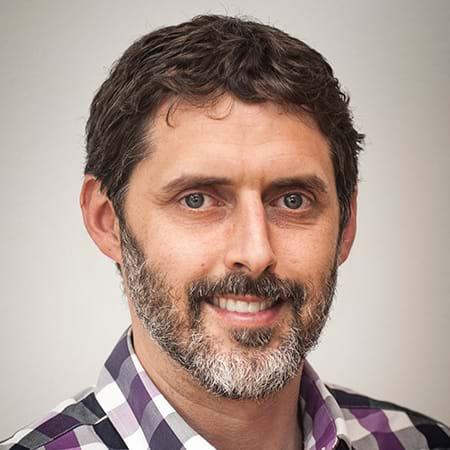
The James lab investigates how genetic variation and pharmacological treatments alter cellular signaling.
-

Seattle Children’s Pediatric Infectious Disease Research Group, directed by Dr. Janet Englund, continues to study SARS-CoV-2, the virus causing the disease known as COVID-19.
-
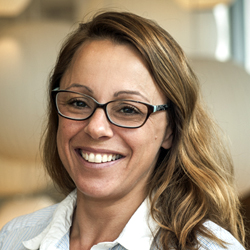
The Jaspan Lab seeks to identify correlates of HIV risk at mucosal surfaces, study the role of the commensal bacteria at these mucosal surfaces in modulating immunity, understand immunity of infants born to HIV-infected mothers who are uninfected yet have high morbidity and mortality, and identify vaccination strategie
-

The Olson Lab focuses on discovering novel therapeutics for pediatric cancers and, more broadly, on discovering protein/peptide therapeutics for a wide range of pediatric diseases.
-

The Jimenez Lab studies traumatic brain injuries and health disparities.
-

Julie Borwn focuses her research on anaphylaxis and the use of epinephrine auto-injectors.
-
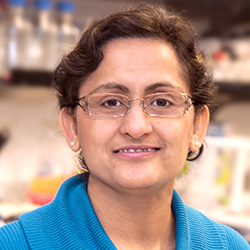
The Kalia Lab studies how immune cells fend off disease and makes discoveries that help improve cancer immunotherapies.
-
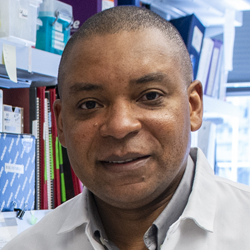
The Kalume Laboratory investigates the mechanisms that drive epilepsy and related conditions, and pursues improved treatments for affected children and adults.
-
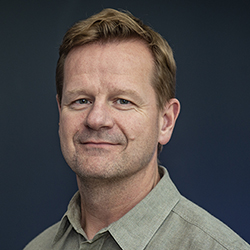
The Kappe Lab is focused on understanding the complex biology of the malaria parasite and the immune responses to infection, using this information to design transformational interventions that will help win the fight against malaria.
-
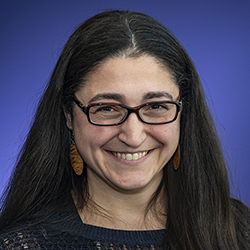
The Kaushansky Lab works with the pathogens of infectious diseases like malaria that infect hundreds of millions of people every year. Our work aims to identify what pathogens need from their host and use this knowledge to prevent and eliminate infectious diseases.
-

Dr. Kelly Evans investigates sleep and breathing in children born with craniofacial conditions, with the goal of improving outcomes in patients with conditions affecting the airway's function.
-

The Kett Lab’s primary research interest is communication and medical decision-making with the families of sick children and with NICU families in particular.
-

Dr. Laguna’s laboratory is focused on studying infections in the CF airway, using next generation sequencing techniques to identify bacterial and fungal communities that inhabit the lower airways.
-

The goal of the Lawlor Lab is to discover how hijacking of normal developmental biologic programs contributes to the origin and progression of childhood cancer.
-

Arousal control is not binary, but involves the complex orchestration of multiple neuromodulatory circuits. The Li Lab therefore aims to better understand the neurobiology of these circuits across broad spatiotemporal scales, integrating findings at the molecular, synaptic, circuit, physiological and behavioral levels.
-

Our research goals are to expand the knowledge domain of programmed cell death and leverage it in treating acute myeloid leukemia (AML) and other hematological malignancies.
-

The Loh Lab focuses on conducting translational studies in childhood leukemia, specifically acute lymphoblastic leukemia (ALL) and juvenile myelomonocytic leukemia (JMML).
-

In the Ma Lab, we combine computational and experimental network biology approaches to understand the molecular interactions that determine infection and treatment fate in tuberculosis.
-

Our lab focuses on understanding the ethical and social impacts of advances in neuroscience on children and families affected by neurodevelopmental, neurological and psychiatric disorders.
-
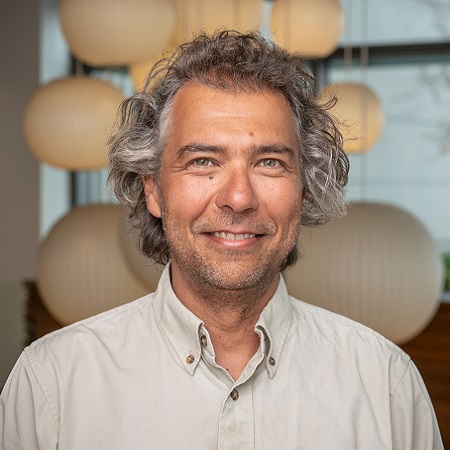
The Maga lab investigates fetal alcohol syndrome and the mechanisms responsible for human malformations, specifically craniofacial disorders.
-
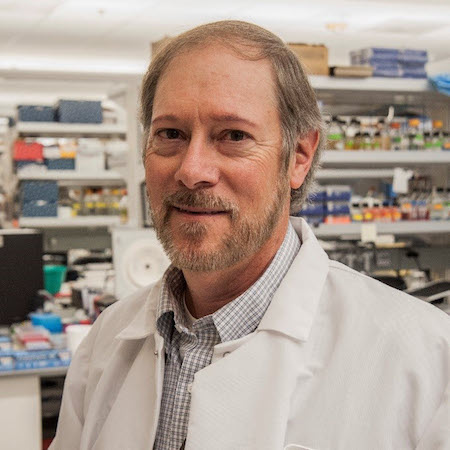
We use molecular biological and developmental genetic approaches to address fundamental questions in development and differentiation of blood vessels. Current projects use both mouse and avian models. One major research focus is on vascular stem and progenitor cells that reside in the adventitial layer of artery wall.
-

The Maves Lab investigates skeletal muscle and heart development, with the goal of making discoveries that lead to new treatments for muscular dystrophy and heart disorders using zebrafish as an animal model because of advantages for genetic manipulations, in vivo imaging, and drug screening.
-

The McCarthy Lab is focused on understanding epigenetic mechanisms regulating cell identity during development, and applying these discoveries to cell reprogramming with the goal of developing liver cell therapies for transplantation.
-

The Miao Lab is pursuing safer, more effective treatments for hemophilia. Our current work focuses on innovative gene therapy approaches.
-

The Millen Lab uses molecular genetic approaches to explore the pathogenesis of congenital birth defects of the human and mouse brain and to study genes essential for normal neurodevelopment.
-

The mission of the Miller Lab is to reduce the burden of undiagnosed genetic diseases on patients and their families by improving the efficiency and effectiveness of genetic testing, and to better understand human genetic disease through the identification and characterization of novel disease-causing variation.
-

The primary goal of the Minkah lab is to discover and define mechanisms that dictate the generation of durable, protective liver-resident memory T cell responses. Observations from our studies will guide the rational design of highly efficacious malaria vaccines and immune-directed therapies against hepatic maladies.
-
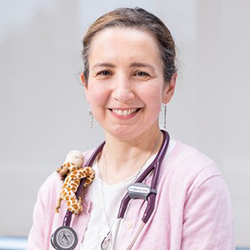
Dr. Ghayda Mirzaa is pinpointing the genes that contribute to many neurodevelopmental disorders. She helped discover many genes that cause focal cortical dysplasia, megalencephaly and microcephaly. This work is opening the door to new treatments that could modify or fix the errors in these genes, addressing the underly
-

We are interested in the design of probabilistic machine learning methods and statistical models that incorporate known biochemical principles to facilitate decision-making from limited data and to allow for asking smarter questions.
-
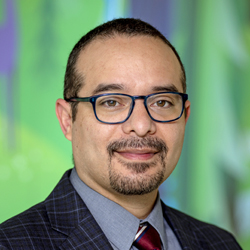
The Montenegro Lab focuses on examining and addressing bias in medicine.
-

The Morgan laboratory studies mitochondria’s role in childhood diseases.
-
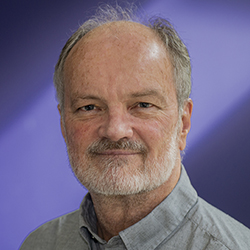
The Myler Lab uses cutting-edge genomic, bioinformatic and molecular approaches to study gene function and protein structure in a variety of infectious disease organisms.
-
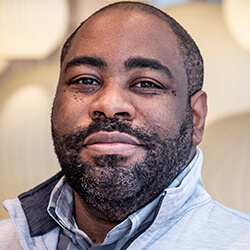
The Myron Evans II Lab is working to better understand why children get brain tumors and which mutations drive those tumors. This research includes studying how the brain normally develops in mammals, and how that process goes wrong and causes brain tumors. The lab is also working to identify new targets that could lea
-
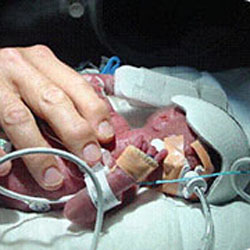
Neonatal Respiratory Support Technologies Team
The Neonatal Respiratory Support Technologies (NeoRest) team, based in Seattle Children's Research Institute's Norcliffe Foundation Center for Integrative Brain Research, is working to reduce infant mortality and morbidity by developing affordable, easy-to-use and easy-to-maintain respiratory support solutions.
-

In the Nguyen Lab, we investigate the genetic and epigenetic changes occurring after kidney injury.
-

The Nigam Lab aims to improve the care of young cardiac patients by discovering innovative solutions for hypoplastic left heart syndrome; improving outcomes for children undergoing cardiac surgery with cardiopulmonary bypass and mechanical circulatory support; and inventing new tools that make cardiac surgery safer.
-
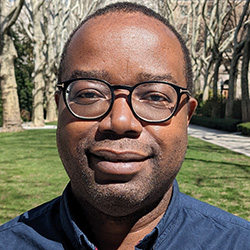
The focus of the Obado Lab is understanding the functional relationship between the control of gene regulation, RNA export and the nuclear pore complex (NPC), which is the sole mediator of nucleocytoplasmic transport.
-

We develop engineering strategies that enable T cells to overcome obstacles in the tumor microenvironment and mount a more powerful, durable and sustained attack on cancer cells.
-

Dr. Aaron Olson is unraveling how changes in cardiac energy production affect heart function. Congenital heart disease and other cardiac problems change how the heart produces energy. While researchers know that these changes impact heart function, they don’t know the mechanisms of this interaction. By identifying
-

The Opel Lab focuses on clinician-parent communication and medical decision-making, with a primary goal to improve child health by identifying effective clinician communication strategies that positively influence parent acceptance of recommended interventions for children.
-

The Page lab is focused on understanding how the components that make up the cellular architecture of the brain (neuronal and glial cell types) are generated and assemble into functional circuits that underlie behavior and cognition.
-

The Paquette Lab goal is to gain insight into the underlying molecular mechanisms linking the in utero environment and birth outcomes by applying innovative network biology approaches and multi-omic data analysis within the placenta.
-

Our current research is focused in two main areas: (i) understanding the biology of the global pathogen Mycobacterium tuberculosis; and (ii) discovering and developing novel drugs for tuberculosis (TB) that are effective at curing drug sensitive and drug resistant tuberculosis.
-

The Pattwell Lab studies genes and processes involved in neurodevelopment and how they are hijacked in cancer.
-

The Pavel-Dinu Lab is interested in studying the complex networks that support hematopoietic regeneration; understanding how it goes awry in the rare monogenetic immune diseases known as inborn errors of immunity; and turning our scientific insights into innovative and long-lasting gene and cell therapies.
-

Pediatric Pain & Sleep Innovations Lab
The Pediatric Pain and Sleep Innovations Lab’s research focus is on pain in children.
-
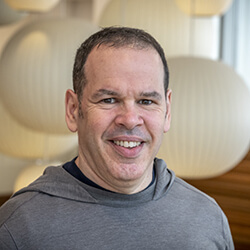
The Piliponsky Lab studies inflammatory responses involving mast cells and myeloid cells. Our goal is to understand how the body controls the immune system’s response to bacterial infections – and how this process becomes dysregulated.
-
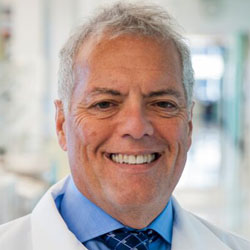
The Portman Research Group discovers ways to protect children’s hearts from damage related to surgery, and leads major research on Kawasaki disease.
-

Defining the clock and the role of rhythms in human airway epithelial function.
-

Program in Mitochondrial Biology
The Program in Mitochondrial Biology’s team delivers clinical care and researches potential cures for mitochondrial diseases.
-

Psychophysiology and Behavioral Systems Lab (PBS Lab)
Directed by Dr. Sara Jane Webb, the PBS Lab is dedicated to furthering research efforts into the etiology, course and treatment of developmental disabilities.
-
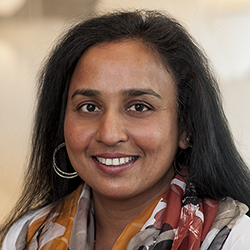
The Rajagopal Lab utilizes genetic, molecular, biochemical and proteomic approaches to study infectious diseases caused by bacteria. The lab focuses on the human pathogens group B Streptococcus and Staphylococcus aureus. Research areas of focus include bacteriology, specifically bacterial pathogenesis, bacterial virule
-

The Ramirez Lab investigates brain functions in order to develop new ways to treat – and potentially cure – neurological disorders.
-

Research in the Reeves Lab seeks to better define the tissue microenvironments of the lung related to airway remodeling during injury and repair.
-
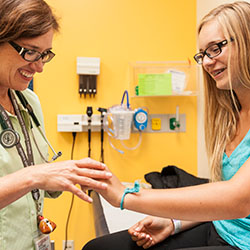
The Rheumatology Research team at Seattle Children’s is committed to improving the lives of children through innovative, patient-focused research.
-

We are the Seattle Concussion Research Collaborative (SCRC) lab, housed at Seattle Children’s Research Institute. Our lab is comprised of clinicians, researchers, public health specialists, and community representatives who are working together to better understand concussion risk and concussion prevention in children,
-
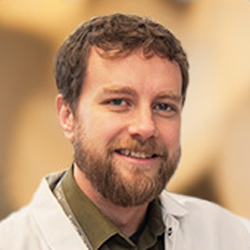
Led by Dr. Stephen E.P. Smith, the SEPS Lab is working to uncover what the gene variations that contribute to autism have in common.
-

Dr. Saelens conducts research in environmental influences on physical activity and eating behaviors and on the psychosocial factors that influence individual choice for weight-related behaviors. He also works in the evaluation and improvement of family-based behavioral treatment for pediatric overweight.
-

Dr. Russell P. Saneto's research focuses on mitochondrial disease.
-
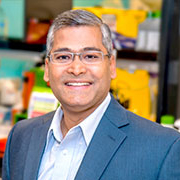
The Sarkar Lab is finding ways to help the immune system remember cancer and attack it if it relapses.
-
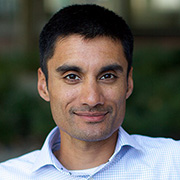
The Sarthy Lab uses the latest tools to understand the role epigenetics plays in pediatric cancers and to explore less toxic cancer treatments. Learn more.
-

The Sather Lab utilizes state-of-the-art technology to develop novel vaccine immunogens and strategies. In addition, the lab is interested in deciphering the mechanisms of antibody-mediated protective immunity by HIV or malaria vaccination.
-

The Sathyanarayana Lab investigates how chemicals in our environment impact children, and develops ways to reduce chemical exposures and help families lead healthier lives.
-

The Shih Lab uses advanced optical imaging to study neurovascular function in the living brain. Our goal is to better understand how blood flows through the brain by watching and learning from model organisms. This can provide clues on the development and repair of key vascular functions, such as the blood-brain barrie
-

The Smith Lab studies the biology of the Plasmodium malaria parasite during the blood stage. The main research interests of the lab are to characterize parasite-host binding interactions and to better understand malaria disease mechanisms. We use this knowledge to design vaccine or disease interventions.
-

Work in the Sodora Lab primarily focuses on two principal areas of HIV research: HIV transmission and HIV-induced disease and immune factors that impact progression to AIDS.
-

Research in the Stuart Lab is focused on diseases that are caused by three related parasitic protozoa (Human African trypanosomiasis [sleeping sickness], Chagas disease and Leishmaniasis) and on malaria, which is caused by another protozoan parasite.
-

We study how early experiences influence later behavior and mental health. By combining AI, biology and neuroscience, we aim to understand how the brain and consciousness develop.
-

The Torbett Lab studies HIV entry, evolution and assembly at the genomic, biochemical and structural levels, and human hematopoietic stem and progenitor cell resistance of lentiviral (HIV) vector entry. We also have a long-standing interest in and study normal and dysfunctional myeloid cell development and function.
-

The Trowbridge Lab focuses on improving palliative care access and delivery for patients from diverse backgrounds and teaching primary palliative care and communication skills to health professionals at all levels.
-

Dr. Eric Turner’s Lab is defining brain pathways underlying motivation, emotion and addiction, and mapping brain circuits in mice.
-

Today, tuberculosis (TB) kills more than 1 million people every year, and an effective vaccine is urgently needed. The primary goal of the Urdahl Lab is to perform fundamental research into the immune response to TB that will help inform the rational design of a new and effective vaccine.
-
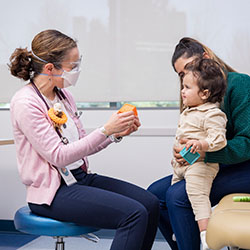
The Vascular Anomalies Program at Seattle Children’s is nationally recognized for its expertise and innovations in research. Through our collaborative approach, we are learning more about each condition, testing new therapies and standardizing clinical care for children with vascular anomalies (VAN).
-
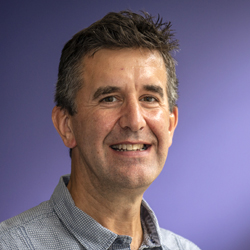
The mission of the Vaughan Lab is to alleviate the suffering of those affected by the disease malaria, which kills upwards of 400,000 people, mostly young children, every year.
-

The Vitanza lab searches for new treatments that are both safe and curative for aggressive pediatric brain and spinal cord tumors, such as diffuse intrinsic pontine glioma (DIPG), diffuse midline glioma H3 K27M-mutant (DMG), and atypical teratoid rhabdoid tumor (ATRT).
-

The Vo Lab focuses on improving health equity and comprehensive care for the chronically ill child.
-

The Wagner Lab focuses on HIV and other chronic viral infections. The lab studies the mechanism of viral persistence and aims to leverage those insights to engineer improved therapy for chronic infections. The primary focus of the lab is on cell and gene therapy as a novel strategy to treat infectious diseases.
-

The Weiss lab focuses on research ethics, with a particular interest in neonatal clinical trials.
-

Dr. Welsh’s research focuses on the role of brain rhythms in cognitive and motor function.
-

The Wightman Lab focuses on research on medical decision-making for children with complex, chronic medical conditions.
-

The Wilfond lab seeks to improve people's experiences navigating our systems and institutions providing healthcare and conducting clinical research though promoting accessible and balanced information and supporting families facing important decisions.
-

Dr. Kai Yu’s lab studies how craniofacial malformations occur, opening the door to new ways to diagnose, prevent and treat them.
